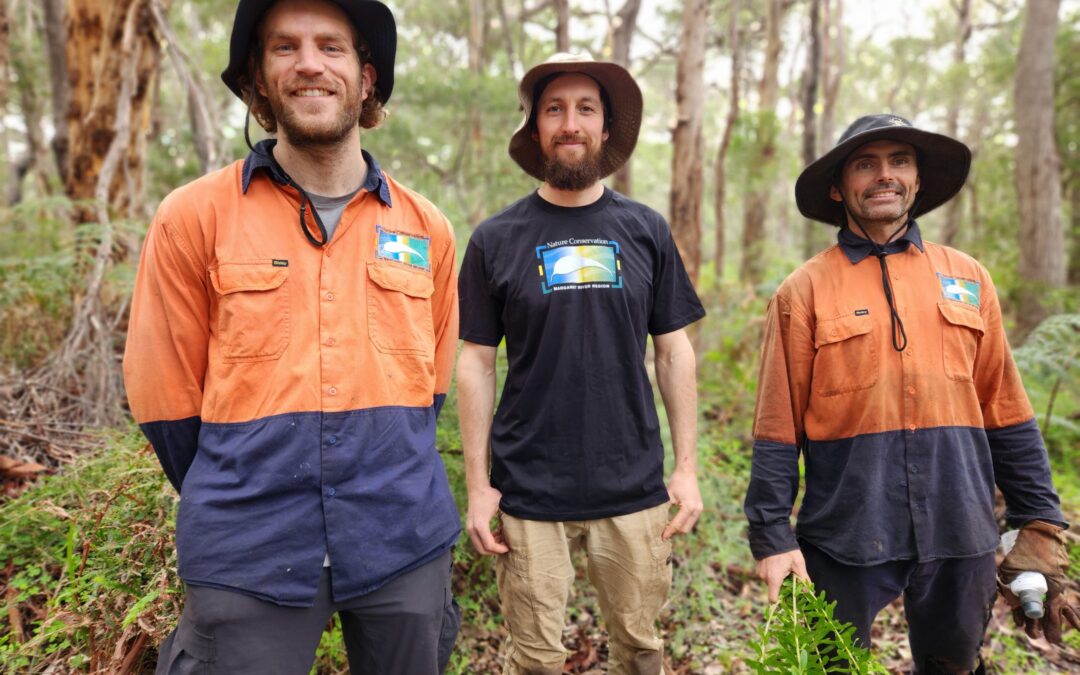Our worst weed – the arum lily – doesn’t flower until spring but Nature Conservation Margaret River Region says now is the time to start preparing to tackle the toxic invaders on your property.
Nature Conservation’s on-ground Bush Regeneration Team are booking in jobs for the arum lily control season ahead, and they are urging landholders who need assistance with spraying to get in touch now to avoid missing out.
“We become booked out very quickly during peak arum lily spraying season, when the invasive weeds are flowering between August and December. It’s our busiest time of year,” says Bush Regeneration Team coordinator Declan McGill.
Nature Conservation’s Arum Lily Blitz coordinates government agencies, community groups and landholders against the threat of arum lilies, while supplying free herbicide and training to landholders. But in addition to the Blitz, the group’s Bush Regeneration Team can do fee-for-service arum spraying to assist landholders, particularly those on large rural properties who cannot deal with the weeds on their own.
“There’s a fair bit of planning and preparation involved before we begin arum lily control, so we’re aiming to get our spray program finalised by July for the season ahead,” Mr McGill said. “That means we’ll need everyone to contact us by the end of June. It’s also a good time to book the Bush Regeneration Team in for other weed management, such as tackling woody weed trees like Sydney Golden Wattle or Sweet Pittosporum.”
To find out more or hire Nature Conservation’s Bush Regeneration Team, email declan.mcgill@natureconservation.org.au.
It comes as Nature Conservation’s 2023 Arum Lily Blitz continues to engage hundreds of new landholders each year, filling in many key arum lily control gaps across the region.
Nature Conservation – working with volunteers and groups including the Friends of the Cape to Cape Track and Department of Biodiversity, Conservation and Attractions (DBCA) – also targeted some crucial spots in the Leeuwin-Naturaliste National Park at Boranup, Quinninup, Moses Rock and in the Cowaramup Brook near Gracetown.
But 2023 Blitz coordinator Mike Griffiths said the biggest achievement was the increasing community awareness as more people recognise arum lilies as a key threat to region’s biodiversity, which he hoped to build on this year. “We’re seeing a lot more awareness in our community, more understanding about the problem and a lot more people who are willing to register for the Blitz and take action on their own property,” he said.
“We’ll be ready for action in the winter when arums start popping up again. There’s always plenty more work to do, but the fantastic results from 2023 should give everyone hope. Collaboration between neighbouring landholders across boundaries is essential for long-term control, and we’re seeing that happen more and more.”
Nature Conservation general manager Drew McKenzie said the Arum Lily Blitz is now being used as the model for community weed control programs elsewhere in WA as a coordinated, region-wide attack on arum lilies, funded by the WA Government’s State Natural Resources Management Program. See www.natureconservation.org.au for more information.

